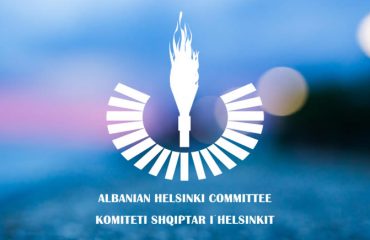By decision 102/2023, the Assembly extended by six months the mandate for the activity of the Special Parliamentary Committee on the Realization of Electoral Reform, which expires on March 21, 2024. The responsibility of the Committee is to address the recommendations that have not yet been implemented from OSCE/ODIHR missions, decisions of the Constitutional Court (28/2021 and 33/2022), recommendations from the CEC, institutions, political parties, and civil society.
Our organizations, the Albanian Helsinki Committee (AHC), Institute of Political Studies (IPS), and Civic Resistance (CR), with experience in monitoring and addressing recommendations regarding electoral issues, at present also in the context of some engagements with international support on electoral reform and the integrity of political parties and electoral campaigns, wish to share publicly this opinion on the progress of work of the Committee and the priority needs for interventions to improve the reform.
With regard to the progress so far of the Committee’s work, we express concern that:
- The Committee continues to be contested by part of the political spectrum, calling into question its representative and decision-making legitimacy, while the reform requires broad and all-inclusive consensus as well as clear political and institutional will. The Assembly has the responsibility to provide solutions for this issue, a responsibility it is yet to exercise.
- The Special Committee began work with online consulting processes in a selective and non- inclusive manner, without concrete drafts on which to provide opinions and recommendations, without offering civil society actors the opportunity to be heard within reasonable deadlines, and without a structured calendar and focus that addresses the priority issues, by focus and responsibility. The process of consultations risks being a monopoly of political parties, with strong formal elements, thus the criteria for transparency and inclusiveness may not be fulfilled
- Based on the best practices of the Venice Commission, electoral reforms should be conducted one year ahead of the electoral process, while the current work of the Committee is far from this deadline and essential matters that require preparation on time are yet to receive solutions
Our organizations estimate that the time left to realize electoral reform requires a more active involvement of the Assembly and political groups in parliament, in order for the Committee on Electoral Reform can provide the most optimal possible solutions to some of the essential problems that have to do with the standard and integrity of the parliamentary elections of 2025. Concretely, through its leading structures and the Committee on Electoral Reform, the Assembly should
I. Carry out the completion of laws and by-laws regarding the realization of the diaspora vote (decision 38/2022 of the Constitutional Court) and revise the Electoral Code, implementing the obligations that derive from decision 28/2021 of the Constitutional Court regarding the quotient in calculating mandates.
II. Open the public debate on the electoral system, aiming at a complete analysis of the advantages and disadvantages of any system in the circumstances of our country and reach consensual decision-making on any potential change or correction dictated by public and not party interest. The practice of unilateral and delayed changes of 2020 should serve as a negative reference that should not be repeated.
III. Provide a clear and functional legal package for the prevention of issues found with the misuse of state resources in electoral campaigns, vote-buying and selling, and limitations of executive decision-making related to the state budget and resources, starting from the day the elections are decreed to the conclusion of the vote-count.
IV. The use as massively as possible of electronic counting, to avoid abuse during the voting and vote count.
V. Full depoliticization of electoral administration bodies, putting an end to practices of party administration and revision of the practice of vote counting in concentrated areas.
VI. Reform legislation on political parties and their financing, ensuring the complete implementation of principles expressed in article 9 of the Constitution of Albania for democratic political parties, in their functioning, legal organization, accountability, and full financial transparency.
VII. The reform will have public trust if law enforcement bodies and justice system bodies will conclude successfully all accusations of vote-buying, trafficking, or unlawful influence by officials, commissioners, activists, or other individuals.
VIII. Legal regulations to ensure effective monitoring and reporting of spending by political parties and candidates ahead of election day and disabling financing by informal groups or criminal activities in the country.
IX. Guarantee equality in all phases of the electoral process both for party chairs and for other candidates, including independent candidates and new political parties.
X. Propose a solid legal basis regarding independent, pluralistic, and inclusive reporting on competing parties, including small political parties, put an end to wrong practices of the use of audio-visual materials prepared by parties or candidates, and the use of media for parties or their control through advertising or informal advertising during the electoral campaign, regulations on online media in electoral campaigns, lobbying through the media, prevention of disinformation by external actors and of censorship by law enforcement bodies within the country.
We believe that the amendments to the Electoral Code and legislation on political parties should not be a monopoly of political parties, should not be made without transparency and inclusivity, and may not be imposed as a fait accompli at the very limits of deadlines.
We recommend an open, solid, transparent, and inclusive process, where our organizations have been and are ready to contribute with their expertise and capacities.
1 The Albanian Helsinki Committee (AHC), in partnership with the Institute for Political Studies (ISP), BIRN Albania and Civic Resistance (CR), with financial support from the British Embassy, is implementing the project “Enhancing the integrity of elections and sustainability of political parties,” lot “Strengthening the monitoring role and accountability by citizens through civil society, the media, and academic support.”




